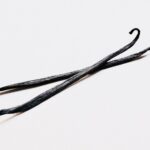Yes, dogs can safely eat thyme and also enjoy its multiple health benefits. You should feed your dog thyme in moderation, preferably mixed with regular dog food to provide them with the herb’s nutritional benefits.

Safe: This food is generally considered safe by the veterinary community. Dogs can eat this food sometimes or in small amounts but contains little to no nutritional value.
| Food Safety | Safe in moderate amounts. |
| Nutritional Value | Thyme has antibacterial qualities, which means it can help combat bacteria that are responsible for diseases. It can also eliminate parasites, such as hookworms. Thyme is also an excellent source of calcium, manganese, and iron, which are all essential for a dog’s development and overall health. Thyme also helps with respiratory issues; therefore, you can use it to help dogs with asthma. |
| Potential Risks | If a dog eats too much thyme, it can exhibit symptoms such as vomiting, diarrhea, diarrhea with occasional blood, depression, difficulty breathing. |
How Much Thyme is Safe for Dogs?
Generally, a teaspoon of thyme per pound of dog food is safe for your furry friend and can help them reap the herb’s nutritional benefits.
How to Feed Thyme to Dogs?
The easiest way to give thyme to dogs is to add it to their regular meals. However, some dogs might dislike new ingredients in their food. In this case, you can make a few treats for your dog, which include thyme. Treats made out of peanut butter, oats, and thyme leaves are an excellent way of enticing your dogs to eat thyme.
Frequently Asked Questions
-
Some dogs might enjoy the scent of thyme; however, the enjoyment in eating thyme is entirely dependent on a dog’s taste.
-
Thyme has several health benefits for your dog. However, it is best to consult your vet before including it daily in your dog’s food. Overeating thyme can lead to digestive issues; therefore, it is important to be cautious.







